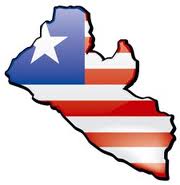 If the history of the Black experience was edible, one of its most delicious entrees would be the creation of the independent nation of Liberia.
If the history of the Black experience was edible, one of its most delicious entrees would be the creation of the independent nation of Liberia.
Of all our celebrations of enterprise and industriousness, few endeavors match the faith and courage required to set sail for the unknown and carve out a new reality holding the promise of freedom from the indignities suffered by people of color in early America.
We know in truth that the effort and its effects, like all colonizing efforts, was flawed and full of unintended consequences. Still, in historical terms, the founding of Liberia ranks second only to the successful uprising in Haiti as a milestone of black achievement in the 1800’s. What’s amazing today, in the age of special curriculums and annual Black History months is that so little recognition of Liberia is given despite the undeniable fact that genealogical ties remain between the descendants of that nation’s founders and blacks throughout America. Today Americo-Liberians as they are referred to, constitute a small minority of their nation; numbering only about 150,000 to 200,000 in a land of 4 million, but they and their extended families are America’s kin in every sense of the word.
In the same way that globalization has made African American culture a worldwide phenomenon; Americo-Liberians carved a unique American imprint on Liberia that lingers to this day. Liberia, whose name means “land of the free,” remains the most American of African countries. The Liberian flag, government, and constitution resemble those of the United States. The former residences of Americo-Liberian families (which still stand) resemble those of former majestic plantation homes in the old American South. Many native Liberians still talk with hints of African American vernacular English. Liberian immigrants to the U.S. have the highest passport acceptance rates and the longest extension rates of any African nation and easily integrate into African American communities. Because of these familial ties all Liberians, despite their heritage or tribal affiliations, have always looked westward for inspiration.
After years of a destructive civil war, Liberia is growing again. The government of Ellen Johnson-Sirleaf, the African continent’s first elected female president, has identified and emphasizes tourism as an important factor in revitalizing the economy. As long ago as 2007 BET founder Robert Johnson called for, “African Americans to support Liberia like Jewish Americans support Israel.” He helped in the creation of a $30 million Liberia Enterprise Development Fund and has shown his commitment to revitalizing the historic relationship between Liberia and America by constructing a beautiful seaside hotel, the RLJ Kendeja Resort & Villas, in Monrovia.
This is the same spirit we hope to capture with The Liberia Project. For us, it’s mostly about music but music has always been a bridge that anyone can cross. We’re hoping that if we’re fortunate enough to take off with a plane full of Hip Hop artists and musicians and music producers, and filmmakers and project supporters that our city will be flying with us. There’s still a long way to go to make the dream a reality, but with your support this beautiful story is going to end up as a documentary no one is satisfied to wait until Black History month to see. #OnStage

